Cornelius Holtorf and Gustav Wollentz attended the Naturkulturworkshopen Waste-in-progress (organised by Timo Menko as part of Smålandstriennalen 2023) held at the illegal waste deposit site in Marhult. During the event they were interviewed by Mathilda Johansson for “Eftermiddag i P4 Kronoberg med Henric Bingström”, broadcast on the same day and available at https://sverigesradio.se/avsnitt/eftermiddag-i-p4-med-henric-bingstrom–9 (27 July 2023).
Cornelius Holtorf participated actively in a brainstorming session for the planned UNESCO Chairs Forum at the World Heritage Committee meeting, convened and chaired by Heba Aziz, UNESCO Chair for World Heritage and Sustainable Tourism Management in the Arab Region at the German University of Technology in Oman. Also participating were five additional UNESCO Chairholders in Egypt (2), Germany, Greece, and Switzerland and three representives of further UNESCO Chairs in Germany, Italy, and Peru (15 August 2023).
Cornelius Holtorf and Anders Högberg participated in several preparatory meetings ahead of the Joint UNESCO/Futures Literacy-OECD/NEA/IDKM Capacity Building on Futures Literacy Training Workshop in Stockholm on 25 September (16 August, 17 August, 6 September, 19 September 2023).
Cornelius Holtorf co-organized (with J. Schönicke and B. Butler) and chaired a session on “The Mushroom Speaks: An Archaeology of Fungi Entanglements” and presented on “Excavating the Future? Towards a (Field) Archaeology of Growth and Regeneration” at the 29th Annual Meeting of the European Association of Archaeologists held at Belfast, UK (1 September 2023).
Cornelius Holtorf met up in Sydney, Australia, with Helen McCracken, Principal Adviser (Delivery) at the Manatu Taonga Ministry for Culture & Heritage, Government of New Zealand, to discuss her recent work leading to the first Long-Term Insights Briefing in which the Ministry fulfilled its statutory duty to enhance public debate on long-term issues and usefully contribute to future decision making, according to the New Zealand Public Service Act 2020 (4 September 2023).
Cornelius Holtorf met up in Sydney, Australia, with Riin Alatalu, UNESCO Chair of Cultural Heritage Studies at the Estonian Academy of Arts in Tallinn, Estonia, to discuss mutual collaboration in the context of our respective UNESCO Chairs and related to the ICOMOS University Forum initiative (4 September 2023).
Cornelius Holtorf took part in a Roundtable at the ICOMOS GA2023 in Sydney, Australia, addressing “Aerospace Heritage and Sustainability” (7 September 2023).
Cornelius Holtorf participated and intervened digitally in the first UNESCO Chairs Forum on Heritage, held as a side event of the Extended 45th Session of the World Heritage Committee in Riyadh, Saudi Arabia, with the Director of the World Heritage Centre, Lazare Eloundou Assomo, 30 people in the room, and 27 UNESCO Chairs from around the world attending, either physically or digitally (18 September 2023).
Cornelius Holtorf participated in the international symposium “Multidisciplinary Overview of the Situation in Fukushima“, held at l’Humathèque Condorcet, Paris, France (21 September 2023).
Cornelius Holtorf met to discuss Culture in the Post-2030 Agenda with Paola Leoncini Bartoli, Director of the Cultural Policies and Development Unit, UNESCO, Paris, France (22 September 2023).
Cornelius Holtorf participated in the first day of the Meeting on “The Medium and the Message: Challenges and Solutions in Selecting and Preserving Records of Radioactive Waste” by the Expert Group on Archiving for Radioactive Waste Management Activities (EGAR) of the Nuclear Energy Agency (OECD) held at the Swedish Radiation Safety Authority (SSM) in Stockholm (26 September 2023).
Cornelius Holtorf offered comments on a draft concept note on “Climate Actions for Safeguarding Intangible Cultural Heritage” (26 Sept 2023).
Cornelius Holtorf attended an online “Future Wednesday” session, organised by VINNOVA (27 September 2023).
Cornelius Holtorf contributed to revising the draft of the “Venice Call to Put Culture at the Heart of Climate Action” ahead of COP28 (27 September 2023).
Cornelius Holtorf attended the European Heritage Hub Community of Practice Forum “Reimagining the Anthropocene: Putting Culture and Heritage at the Heart of Climate Action” held as part of the European Cultural Heritage Summit 2023, broadcast from Venice, Italy (28 September 2023).
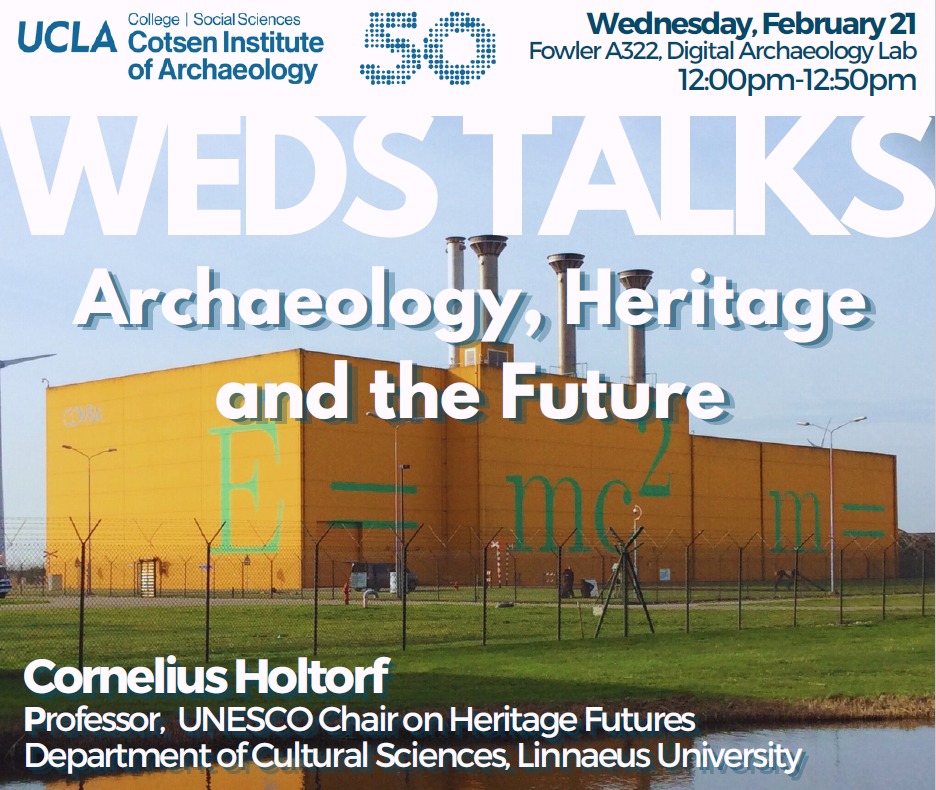



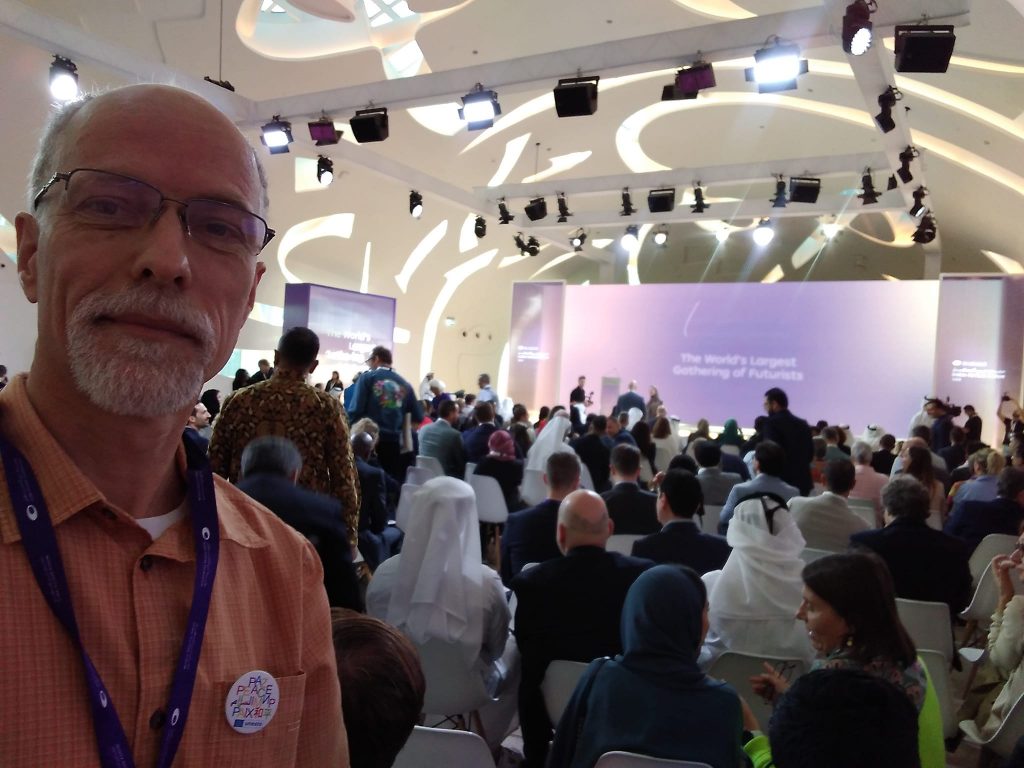

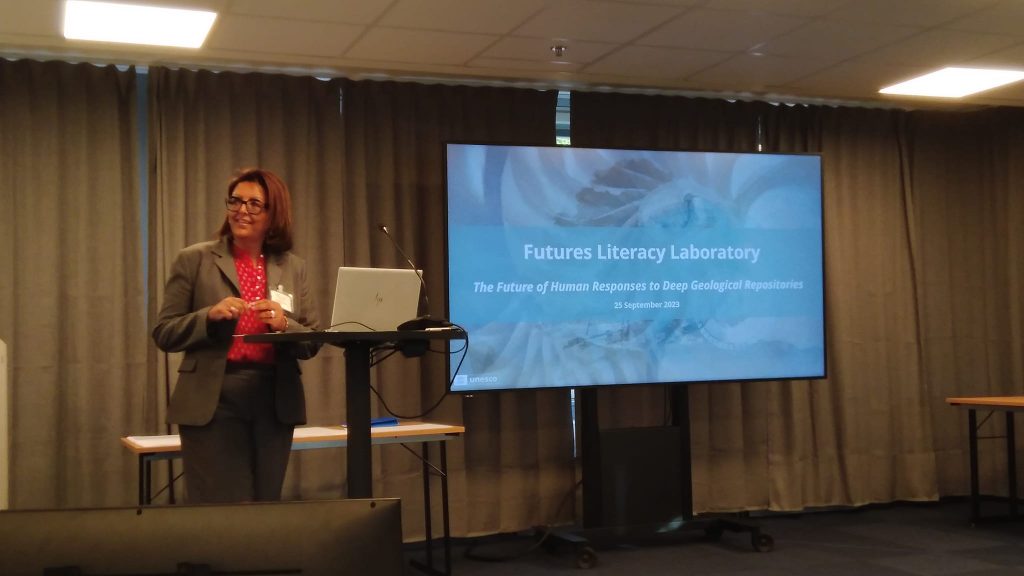
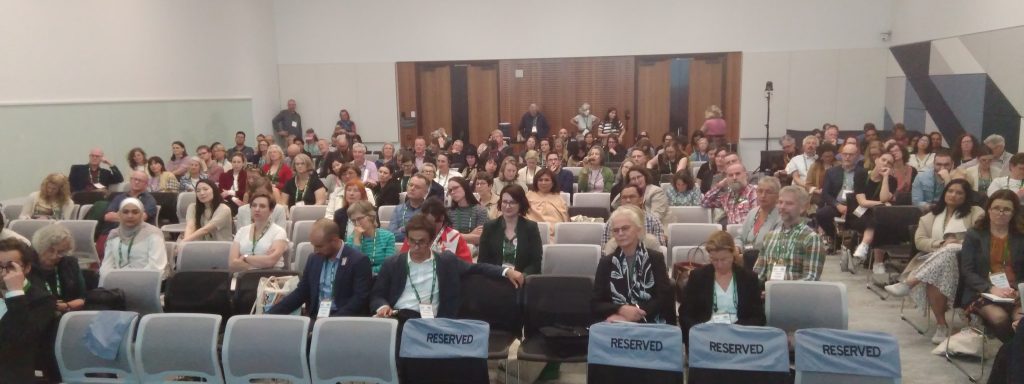
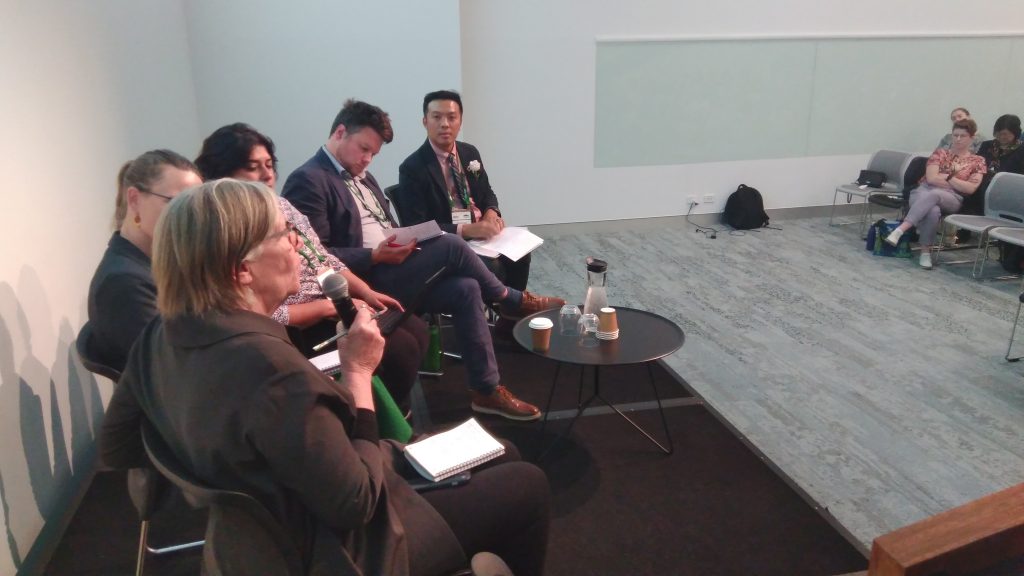
[…] The new funding for this and a number of additional smaller projects, means that the Climate Heritage Network is…
[…] Chair on Heritage Futures « Culture, cultural heritage and COP26 […]
[…] mer på Unescoprofessurens blogg http://blogg.lnu.se/unesco/?p=1061 Besök Öland 2050! […]